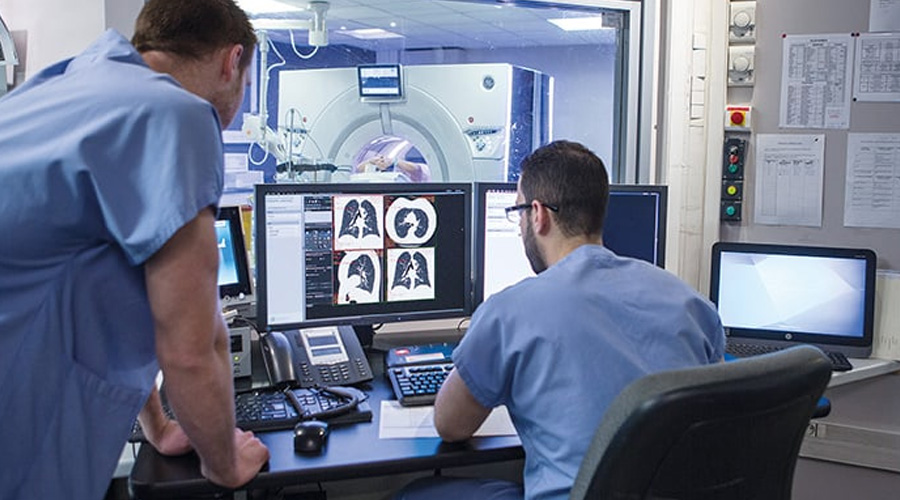
AI-Powered Diagnosis: Revolutionizing Medical ImagingAI-Powered Diagnosis: Revolutionizing Medical Imaging Medical imaging has witnessed a transformative revolution with the integration of Artificial Intelligence (AI). AI algorithms enhance the accuracy, speed, and accessibility of disease diagnosis, revolutionizing the healthcare industry. Enhanced Accuracy: AI algorithms are trained on vast datasets of medical images, enabling them to identify patterns and detect subtle anomalies that may escape the human eye. This results in improved diagnostic accuracy, reducing false positives and negatives. For example, AI-powered mammograms have shown increased sensitivity and specificity in detecting breast cancer. Accelerated Interpretation: AI algorithms can quickly analyze large volumes of medical images, reducing the time it takes to reach a diagnosis. This allows for faster patient triage, treatment planning, and timely interventions. Emergency room physicians can benefit from AI-assisted chest X-ray interpretation, leading to rapid diagnosis and appropriate care. Increased Accessibility: AI-powered diagnostic tools can be integrated into remote healthcare settings. This enables access to specialized expertise in underserved areas or during off-hours. Patients can receive prompt and accurate diagnoses without having to travel long distances or wait for appointments. Specific Applications: AI has found wide applications in various medical imaging modalities: * MRI: AI algorithms detect and classify brain abnormalities, such as tumors and stroke lesions, with high accuracy. * CT scans: AI assists in identifying lung nodules, heart disease, and musculoskeletal injuries. * Ultrasound: AI enhances the visualization of fetal anatomy and aids in prenatal diagnosis. * X-rays: AI automates the detection of fractures and other skeletal abnormalities. Benefits for Patients: AI-powered diagnosis offers numerous benefits to patients, including: * Earlier and more accurate detection of diseases * Improved treatment outcomes and reduced complications * Reduced healthcare costs and insurance premiums * Increased patient satisfaction due to faster and more thorough evaluations Future Outlook: The integration of AI in medical imaging is rapidly evolving. Future advancements include: * Personalized Medicine: AI will personalize diagnostic and treatment plans based on individual patient characteristics and risk factors. * Quantified Imaging: AI algorithms will provide quantitative measurements of disease severity and progression, facilitating objective monitoring and treatment response assessments. * Real-Time Diagnosis: AI-powered imaging devices will enable real-time diagnostic evaluations during surgery or endoscopic procedures. Conclusion: AI-powered diagnosis has revolutionized medical imaging, leading to enhanced accuracy, accelerated interpretation, increased accessibility, and improved patient outcomes. As AI technology continues to advance, it holds immense potential to further transform healthcare and provide even greater benefits to patients and healthcare professionals alike.
Posted inNews